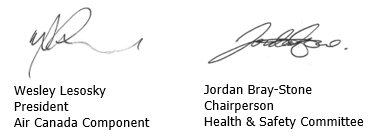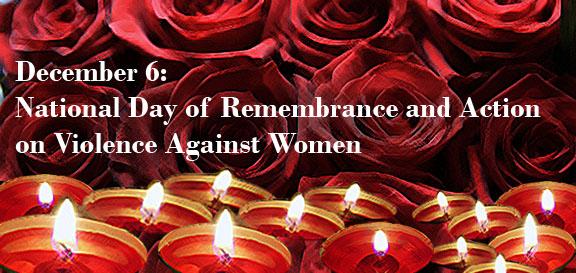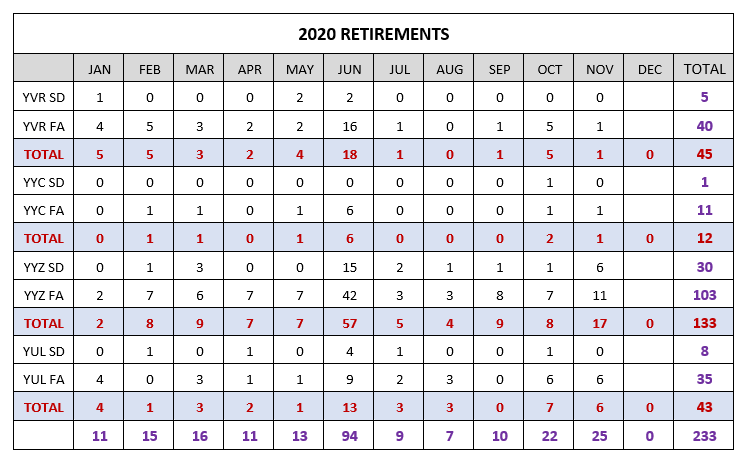The Air Canada Component of CUPE is pleased to announce that we have had a beneficial decision in relation to a grievance (CHQ-rouge-17-47) that was filed regarding a return to work for some of our members returning after having a baby. In addition to the favourable decision by Arbitrator Stout found HERE, this decision has been featured by the Centre for Labour Management Development in their regular Accommodation E-LERT series. Please see their E-LERT case synopsis below. This successful outcome could not have been achieved without the invaluable assistance of our witnesses. These witnesses were flight attendants who had been affected by this situation. They gave their time and attention to this process as did the Component Secretary-Treasurer Alex Habib who provided valuable information about the return to work process at Air Canada Rouge. In addition, we were represented by our valued legal counsel Megan Reid and Rebecca Glass of Dewart Gleason LLP.
This decision is an affirmation that we are on the right side of this argument and that the Human Rights legislation in Canada is so strong and supportive for those that have children. Your Union understands how important the rights of expectant parents are and the place of family status in Human Rights legislation. We will continue to use our resources to ensure that these rights are protected.
Here for you,
Theresa Mitchell
Vice-President, Air Canada Component of CUPE
labourlawonline.ca
CENTRE FOR LABOUR-MANAGEMENT DEVELOPMENT
Employer fails to provide re-qualification training to flight attendants returning from maternity leave within a reasonable period of time
Accommodation E-lert, posted on December 3, 2020 within the category “Accommodating family status”.
When flight attendants returned to duty after maternity leave, they were required to attend a mandatory retraining program to re-certify. The employer argued that training was difficult to coordinate and required expensive equipment, meaning training was usually only offered once per month or less. As a result of the delays in retraining, the flight attendants lost wages and benefits. An Ontario arbitrator ruled that the employer needed to provide the required training within a reasonable amount of time.
Legal Citation
Canadian Union of Public Employees, Air Canada Component v Air Canada Rouge, 2020 CanLII 58706 (CA LA), August 5, 2020 (John Stout)
Facts
The Canadian Union of Public Employees (CUPE) brought a policy grievance against Air Canada Rouge, alleging that the employer had failed to provide the necessary re-qualification training as soon as possible to flight attendants after they returned from maternity leave.
It argued that this failure breached the collective agreement, the Canada Labour Code, and the Canada Human Rights Act.
After receiving detailed written submissions – including several will-say statements from both sides – Arbitrator Stout requested that the union should present additional evidence detailing the experiences of some of the women who had suffered the alleged discrimination.
The union obliged, and presented evidence on four employees.
These four female flight attendants shared a similar experience.
Essentially, all four gave notice to the employer that they would be leaving for a one-year maternity leave, and they would contact the employer closer to their return date to finalize their return-to-work details (in case they decided to extend or shorten their leave).
All four took the full twelve months of their statutorily guaranteed leave, and connected with the employer during the final weeks of their leave to establish their return-to-work date.
For three of the women, the employer told them that the next available training to become re-certified to fly would not be for another month.
This meant that they could not work or receive pay until that time.
All three women used their available vacation time to bridge some of this gap in time, but all three ultimately ended up being without pay for approximately twenty days each.
The case of Ms. McKenzie was somewhat different. Her return-to-work date was scheduled during a busy time of the year for the employer.
When she repeatedly attempted to coordinate her training and return to work, the employer responded that they were unsure when training would be available.
It said that it might be as long as two to three months after her anticipated return-to-work date.
The employer did, however, offer to have her take the new-hire training program. This would make her eligible to work, but it would take twenty days to complete, as compared to the ten days for the re-certification.
However, the employer stated that it would only compensate her for ten days of the training.
Ms. McKenzie agreed to take the reduced pay and longer training, which meant that she still was without pay for over twenty days after using her vacation time to bridge the gap between her return and the new hire training.
Analysis
In its evidence at arbitration, the employer testified that, to enable the successful re-certification of a flight attendant, a specialized simulation of an aircraft was required, as well as a simulation door and cart.
According to the employer, the total cost of this equipment was over $3 million, so there are only a few of these in existence.
This sometimes required the employer to rent the equipment from Air Canada or a competitor, increasing the cost and complexity of arranging training.
As well, a large component of the training depended on the availability of trainer, since it took a person fifteen to seventeen days to become a certified trainer, and the employer only had two full-time training personnel at the material time.
The union led evidence which established that Air Transat and Sun Wing – both competitors of the employer – were able to offer immediate training to all employees returning from maternity leave.
These competitors accomplished this, even though it meant that the returning employee might be the only flight attendant undergoing the training.
Arbitrator John Stout began his analysis by addressing the employer’s argument that they were not discriminatory in their practices, because everyone returning from an extended leave would face this gap in pay.
He ruled that human rights law requires a more nuanced approach:
“Just because the Collective Agreement or a Company requirement (rule, policy or practice) applies equally to all employees does not mean that it does not discriminate against a specific group of employees when applied in context. The three-part test set out by Justice Abella in Moore v. British Columbia (Education)¹… recognizes the inherent dangers of relying solely on group comparators and provides for a more contextual approach to the discrimination analysis” [Emphasis added]
Next, Arbitrator Stout held that choices made by an employee must be considered within the larger context of their human rights, in this case gender and family status rights:
“The protected characteristic was clearly a factor in the adverse impact. The length of the leave of absence is directly tied to the lapse in qualifications. In this case, it is because the Flight Attendants exercised their statutory right to a leave of absence to give birth and care for their child that they became no longer qualified for line duty. I acknowledge that to some extent the length of maternity and parental leave is a choice. However, at this stage of the analysis, it is my view that the choice is between a right and waiving that right. In my opinion, such a Hobson’s choice is untenable because it may require Flight Attendants to give up a significant amount of time with their child, which other parents are entitled to take by law” [Emphasis added]
With prima facie discrimination established, the arbitrator then moved to consider whether the employer had met its duty to accommodate the employees to the point of undue hardship:
“I also accept the Company’s evidence that providing immediate training to all individual Flight Attendants returning from maternity and parental leave would be an unreasonable interference with their operations and an undue hardship. The Company lacks their own training facilities and training equipment, the logistics associated with training on aircraft, coordinating training and the costs associated with addressing these difficulties is more than an inconvenience and represents a substantial departure and excessive interference with the Company’s normal operations. [However], it would not be an undue hardship to have the occasional one-on-one training provided to an individual Flight Attendant who may be left without income for an extended period of time” [Emphasis added]
Finally, having found that the employer’s justifications for the prima facie discrimination did not amount to undue hardship, Arbitrator Stout issued his remedies:
I order the Company to make their best efforts to address each individual case and accommodate Flight Attendants returning from maternity and parental leave to the point of undue hardship. I direct the Company to review their practices, to communicate better, be more flexible and determine whether they can make other changes to provide Flight Attendants returning to work from maternity and parental leave with reasonable accommodation” [Emphasis added]
Implications for Employers
While an employer is entitled to consider the cost implications of an accommodation request, it can only rely on these implications if they amount to undue hardship. Cost as an undue hardship factor is rarely successful. As well, this decision demonstrates that accommodation is an individualized process. If an employer neglects to fully investigate whether a requested accommodation by an individual employee, and fails to turn over every stone in trying to satisfy the request, then it is liable to be found in breach of its human rights obligations.
Implications for Unions
The arbitrator in this case permitted the union to introduce extrinsic evidence – evidence of parties’ practices that aid in the interpretation of a collective agreement or statutory right – in order to demonstrate the re-certification practices of other competing airlines for flight attendants returning from maternity leave. This evidence was critical in shaping the arbitrator’s ruling on the accommodation alternatives available to the employer.
As well, this ruling demonstrates that legal decision-makers will assess the question of “choice” within a human rights lens, acknowledging that circumstances larger than an employee seeking an accommodation will sometimes dictate the alternatives that they choose from. This issue was restated more recently by the Supreme Court of Canada in Fraser v Canada, 2020 SCC 28.
¹ 2012 SCC 61.




